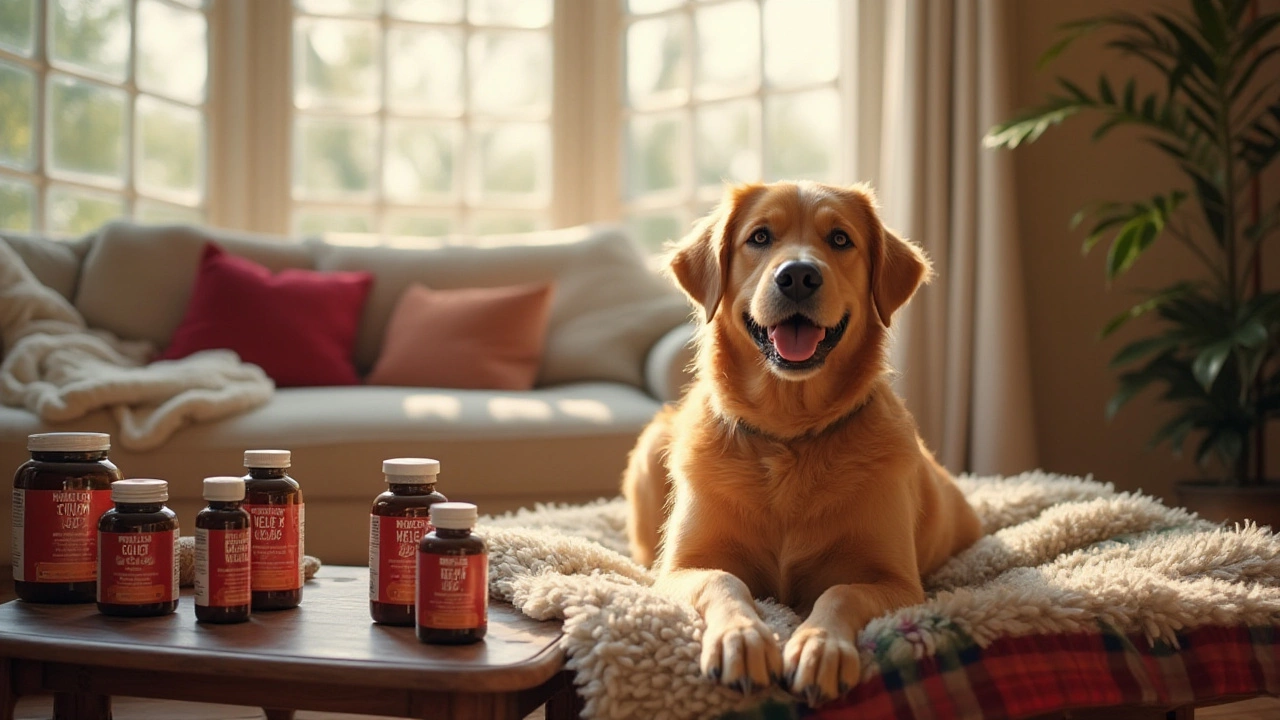Canine Wellness Made Easy: Keep Your Dog Healthy and Happy
Every dog owner wants a pup that bounces with energy, eats well, and feels good. The good news? You don’t need a degree in veterinary science to give your dog the basics of wellness. Just follow a few everyday habits and you’ll see the difference in a few weeks.
Nutrition and Feeding Basics
Food is the foundation of health. Pick a high‑quality dog food that lists a real meat source first, avoids unnecessary fillers, and matches your dog’s life stage. If you’re feeding dry kibble, keep the bowl clean and measure portions so you don’t over‑feed – a common mistake that leads to weight gain.
Don’t forget fresh water. Dogs often skip the bowl if it’s dirty or left out for too long. Change the water at least twice a day, especially in warm weather. Adding a splash of low‑sodium broth can encourage reluctant drinkers.
For dogs with special needs, consider supplementing with joint‑support oils or a balanced multivitamin, but only after talking to your vet. Simple tweaks like splitting the daily portion into two meals can help with digestion and keep energy steady.
Exercise, Play and Mental Stimulation
Physical activity and mental challenges go hand in hand. A daily walk of 30 minutes to an hour is a solid baseline, but vary the route, pace, and terrain to keep it interesting. If your dog loves water, a quick splash in a safe pond or hose can be a great low‑impact workout.
Play isn’t just about burning calories – it sharpens the brain. Fetch, tug‑of‑war, and puzzle toys all give your dog a chance to problem‑solve. Rotate toys every few days so they stay fresh and engaging.
Stress can creep in when dogs are bored. Short training sessions (5‑10 minutes) teach new tricks, reinforce good manners, and provide mental relief. Even a simple “sit” or “stay” practice can boost confidence and reduce anxiety.
Grooming is another quiet way to keep tabs on health. Brushing removes loose hair, distributes natural oils, and lets you spot ticks, skin irritations, or lumps early. Regular nail trims prevent painful overgrowth and keep your dog comfortable on walks.
Dental health often gets ignored, but a quick chew on a dental chew or a toothbrush session once a week helps stop plaque buildup. Healthy gums mean fewer vet visits for dental issues later.
Finally, schedule routine vet check‑ups at least once a year. Vaccines, blood work, and parasite prevention are the safety net for hidden problems. Keep a record of weight, appetite, and activity levels so the vet can spot trends.
Putting these habits into a simple daily checklist – food, water, walk, play, grooming, vet – makes canine wellness feel manageable instead of overwhelming. Your dog will reward you with wagging tails, bright eyes, and a longer, healthier life.
Posted By Bryndle Redding On 27 Nov 2024 Comments (0)
Exploring the Value of Dog Health Supplements
Dog health supplements have become a popular choice for pet owners looking to enhance their furry friend's well-being. These products promise to address various issues ranging from joint problems to coat health. But are they genuinely beneficial, or just another marketing fad? This article delves into the necessity, effectiveness, and potential benefits of dog supplements, aiming to help owners make informed decisions.
READ MORE